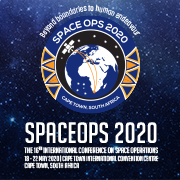›SCOSTEP STP-12 Symposium
This is the twelfth in the series of Solar-Terrestrial Physics Symposia organized by SCOSTEP (Scientific Committee on Solar-Terrestrial Physics). They are held on an approximately quadrennial basis. The main goal of SCOSTEP is to organize scientific programs in the solar-terrestrial environment. The current program is Climate and Weather in the Sun-Earth System (CAWSES), which has the overall goals of fostering a scientific approach to understanding the short term (Space Weather) and long term (Space Climate) variability of the integrated solar-terrestrial environment, and for its societal applications and CAWSES-II: Toward Solar Maximum runs from 2009 to 2013.
The main thrust of CAWSES is to treat the entire solar-terrestrial domain as one system, rather than treating each region independently. CAWSES-I covered the descending phase of the solar cycle from 2004 to 2008, whereas CAWSES-II covers the rising phase of the solar cycle.
The following scientific sessions of STP12 are grouped according to the major themes of CAWSES:
1. Solar influences on climate
a. Solar physics, variability, heliosphere
b. What are the solar influences on Earth's climate?
c. The role of mesospheric clouds in climate research
2. Space weather: science and impacts
a. CME-ICME connection
b. Shock formation in the solar atmosphere
c. Solar wind and magnetosphere interface
d. Substorm variability
3. Atmospheric coupling processes
a. What is the geospace response to variable inputs from the
lower atmosphere?
b. Coupling by transport of photochemically active species
c. The role of dynamic waves for coupling
4. Space climatology
a. How will geospace (MLT, ionosphere, magnetosphere)
respond to an altered climate ?
b. How does short-term solar variability effect the geospace
environment?
Track this event on your Apple calendar














 Germany
Germany